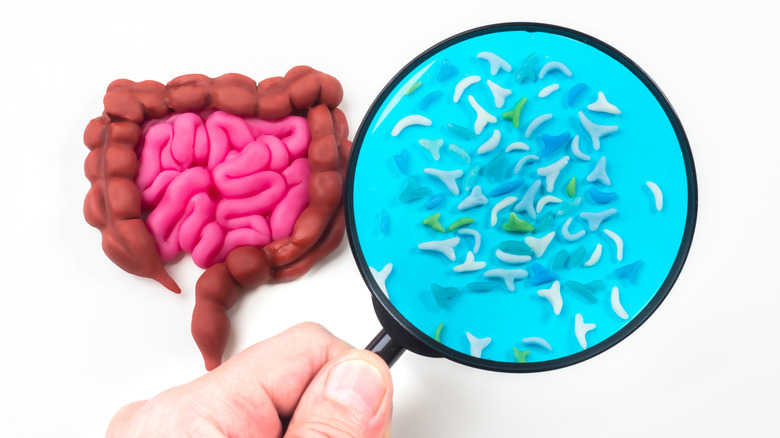Here's What Would Happen If Humans Didn't Have An Appendix
Many people assume that the appendix is a spare part of the body because it can be easily removed. This view isn't helped by the fact that one out of every 100,000 people is born without an appendix, according to a study published in Case Reports in Surgery. The popularity of appendicitis in movies and television shows also gives the impression that the condition is incredibly common. In reality, between five and nine people out of every 100 develop appendicitis, which can be fatal if left untreated (via The National Institute of Diabetes and Digestive and Kidney Diseases).
As it turns out, the appendix serves an important function in the body. Dignity Health explains that our appendix helps us reintroduce healthy bacteria to our gut after we suffer severe vomiting or diarrhea. It is a function that can be largely replicated with modern drugs, which is good news for people who have had their appendix removed. Without these tiny organs, our species may not have survived or evolved. This is partly due to its ability to restore healthy gut bacteria, but also because it serves a critical secondary purpose.
Immune-boosting gut bacteria
Dr. William Parker studied the appendix in 2007. He and his team found that the appendix acted not only as a "reservoir" for healthy gut bacteria but also contained a large amount of lymphoid tissue (per Live Science). Lymphoid tissue creates white blood cells, specifically lymphocytes, which are vital to the function of the immune system. Parker and his team speculated that the appendix helps "make, direct, and train" these disease-fighting cells.
Together, these two functions make the appendix much more vital than most people believe. It also raises the question of what would have happened if we hadn't developed them. Dr. Parker and his colleagues believe that it would have depended on when the appendix disappeared. If the organ vanished before the discovery of antibiotics and modern medicine, the result could have been larger swathes of the population dying from diseases that destroyed their gut bacteria. If the appendix were to vanish now, however, antibiotics and procedures like fecal transplants would make up for its loss. Although the idea of a fecal transplant may seem unpleasant, it is a widely used process. It involves a healthy person's fecal matter being put into the gut of someone without healthy gut bacteria. Thankfully, however, the appendix seems to be sticking around for a while longer.


